Once a slur, then a neutral descriptor, “queer” has now been refashioned into an ideology. It no longer names desire; it names rebellion. To call oneself queer today is to stake out a posture of permanent opposition — to tradition, to transcendence, to biology, to anything that dares to claim objective reality. It is not a life lived but a flag planted: a militant rejection of the given order, sanctifying the self against every external limit.
Queerness is not a celebration of difference. It is an ideology of anti-being, defined only by what it negates.
The Founders of the Faith
This worldview did not emerge from the ether. Its foundations were laid by post-structuralists like Michel Foucault and cemented by Judith Butler in Gender Trouble. Butler’s theory of “gender performativity” posits that gender is not a biological fact but a series of repeated acts—a performance that mimics stability but never delivers it. From this, “queerness” was theorized not as a state of being, but as a subversive act aimed at destabilizing the “heteronormative” order.
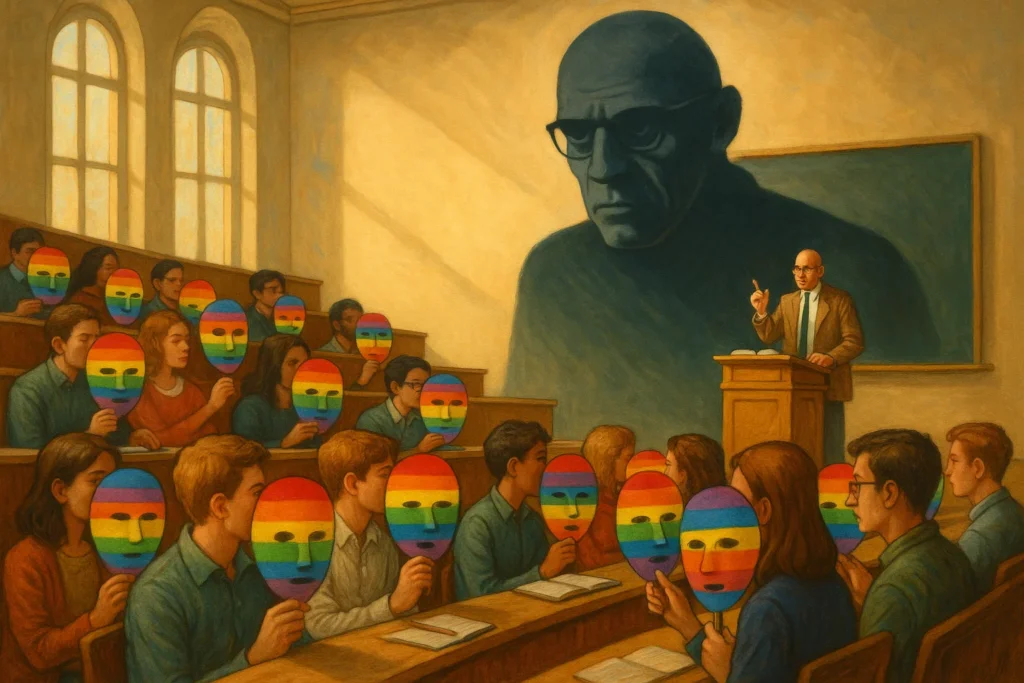
Herein lies the fatal flaw and the Queer Paradox. The entire project is philosophically dependent on having a dominant norm to rebel against. Its raison d’être is opposition. Its proponents are thus trapped in a theological dilemma: their promised heaven—a fully “queered” society—would be normative and would instantly invalidate their entire belief system. Their salvation is their oblivion. The ideology is like a shark that must keep swimming; the moment it reaches shore, it suffocates. This is why the movement can never be satisfied. It is a revolution that must be permanent because its victory would be its end.
The Badge of the Enlightened
This theoretical foundation breeds an elitist mindset. Declaring oneself “queer” is the ultimate act of virtue signaling—a tribal shibboleth. It is a public declaration that one is among the enlightened vanguard who have seen through the “constructed illusion” of natural norms. This is not about love or desire; it is about ideology and power. It operates as a class marker within the professional-managerial elite, signaling unwavering ideological compliance and a claimed superior moral status.
This is perfectly illustrated by tech critic and Wikipedia editor Molly White, who explicitly lists “queer” among her credentials. This is no biographical footnote; it is a carefully curated badge of membership in the revolutionary cadre. Her case is typical of a whole stratum of NGO staffers, DEI administrators, and media figures—a signal to the in-group that the wearer is a trusted comrade in the struggle against the “normative” masses.
The Grift of Victimhood
This performative signaling is intensely practical. It is the laziest possible form of social climb. The act is trivial: insert the word “queer” into a biography. The payoff, however, is immense. It immediately grants the declarant a coveted status: that of the officially sanctioned “marginalized” victim. This functions as a get-out-of-criticism-free card and a fast-pass to institutional influence.
One announces they are “queer” not despite being a white, affluent, Ivy-League-educated professional, but precisely because of it. It is an attempt to launder immense privilege through the currency of victimhood, acquiring a moral veneer that shields them from any charge of being part of the elite they condemn. They become special and deserving of protection not through struggle or achievement, but through a magical incantation of identity. It is a grift, and the entire apparatus of modern culture is the mark.
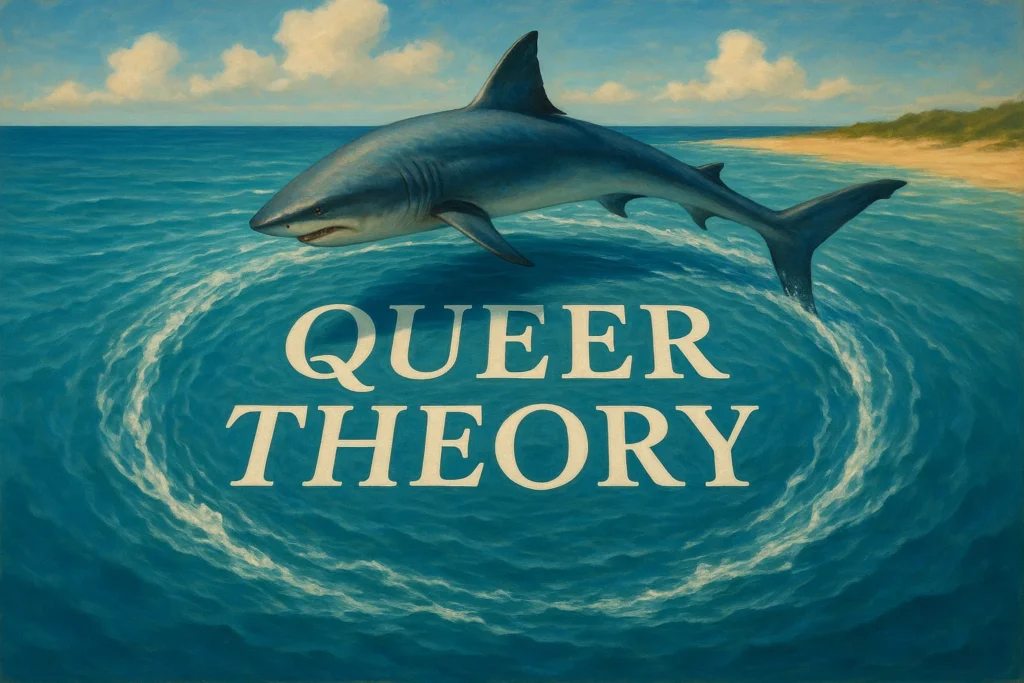
The Pronoun Passport
This economy operates on identical principles to the compulsive display of “pronouns” in bios. The mechanism is the same: a cost-free gesture—typing “she/her” after one’s name—is presented as a deep expression of identity. In reality, it is first a tribal signal. It instantly communicates, “I am one of you. I am safe. I am enlightened.” For most, it is a purchased passport into the realm of the morally superior—performative empathy as a status symbol. The “queer” label and the “pronouns” badge are two sides of the same debased coin.
Conclusion: The Shortcut to the Anointed
Ultimately, this reveals a movement that is not about liberation, but about the creation of a new priesthood. The labels “queer” and “they/them” are nothing more than dog whistles for fellow travellers—a whispered password that signals, “I am in the club. I am one of the anointed.”
The paradox of queerness is the paradox of any ideology that defines itself solely by opposition. Without a positive, life-affirming foundation, it is doomed to consume itself. A society cannot be built on such hollow, self-refuting foundations. It can only collapse into the conformity it despises or into sterile chaos.
Queerness does not liberate; it enthrones a new orthodoxy, brittle, joyless, and parasitic — a creed that survives only by feeding on the very norms it pretends to destroy.
— Wolfshead

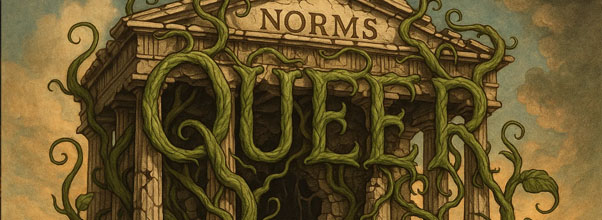
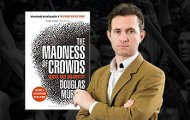

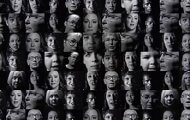
This ideology is so messed up that it makes even something as profoundly flawed as socialism sound really sane in comparison.